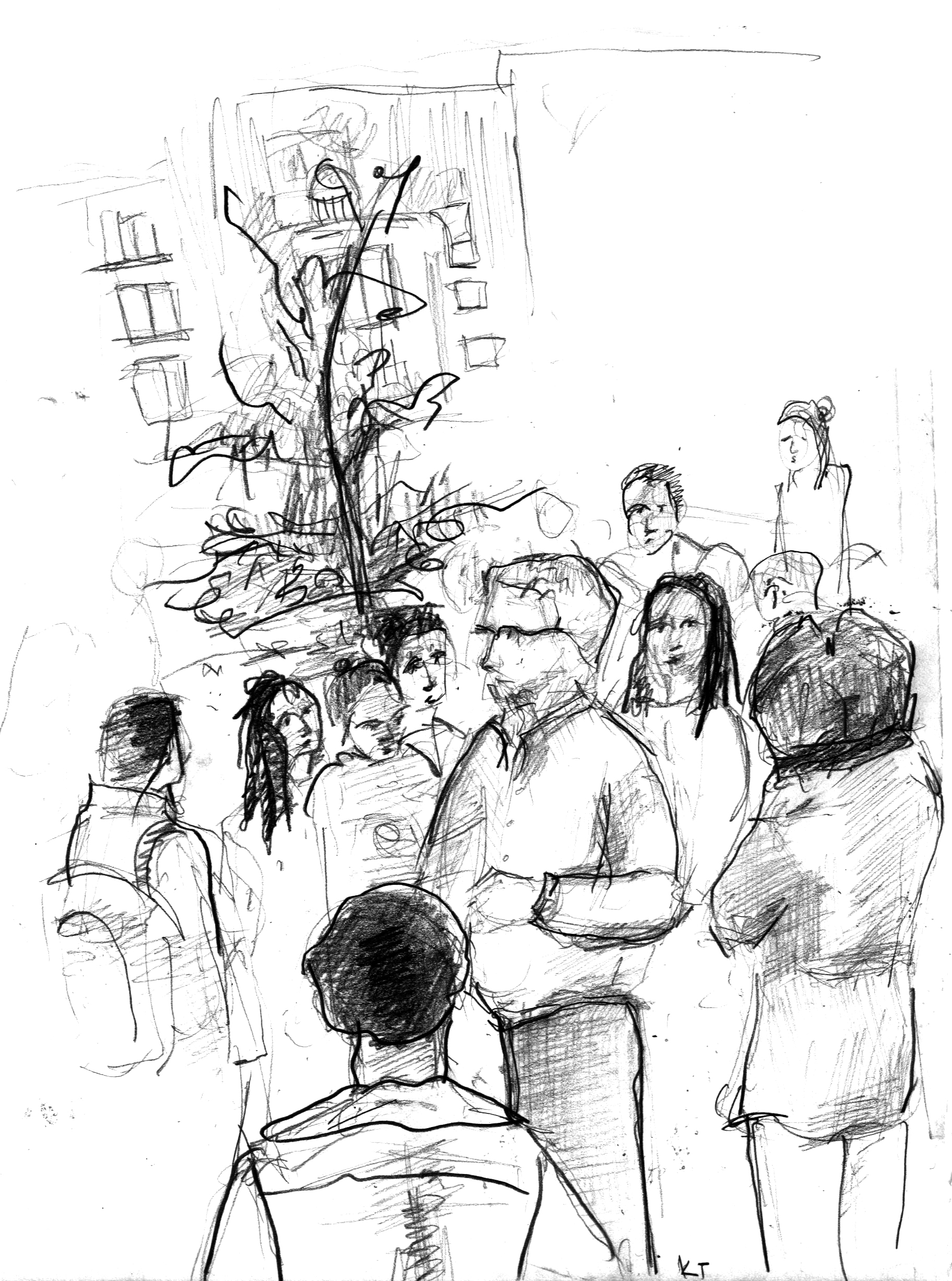
I am scared for my school. Watching the video of students’ confrontation with Silliman College Master Nicholas Christakis, I found myself fearing that the students would use physical violence against him. Thank goodness, they didn’t, but the realization that this was even a possibility at a place like Yale is utterly terrifying.
I will neither attack nor defend either the Intercultural Affairs Council’s or Associate Master Erika Christakis’s email. Those are jobs for someone else. What horrifies me was the response to Master Christakis’s defense of his wife. After chalking up the ground within view of his bedroom window, Christakis found himself in the center of the Silliman courtyard with students who pretended to debate him. We all want our opinions to be correct, obviously, and we have a deep-seated desire to express them. In debate, every side must have the right to contribute and be heard; this is the foundation of rational discourse. But on Thursday, in a literal act of intimidation, students started down the quickest path to mob rule and authoritarianism.
Many students have claimed that Master Christakis was dismissive of them. Given that he had the forbearance to stand and be attacked for hours, and invited every Sillimander who signed a petition demanding his removal to have dinner with him and his wife, I am at a loss to guess what would have been a sufficiently receptive response. But even if he had been arrogant and derisive, he would not have deserved the treatment he received. Master Christakis does not deserve a certain level of respect because he is a college master; he deserves it because he is a human being.
This man was surrounded outside his own home by dozens of students, who called him “f—king disgusting.” They jeered, “We know where you live.” What is happening?
Christakis’s opponents were so aggressive that I expected him to be physically attacked. Even in the absence of violence, the insults and threats hurled at him would have surely made some men burst into tears. Christakis had more fortitude, especially considering the added emotional burden of defending the wife he loves. Tactics like these undercut the valid arguments the protesters have made: it rather flips the power dynamic when dozens of taunting students surround a lone college master. To call this behavior childish would be insulting to children. Such bile can only come from minds poisoned by the certainty that anyone who calls for moderation is evil.
As a private university, Yale is not bound by the First Amendment. But freedom of speech is as much about culture as it is about law. We need an atmosphere in which nobody fears voicing controversial views. Demanding the immediate removal of administrators for doing nothing more than sending a poorly worded email is antithetical to this ideal. And to focus on a single email, when people go to bed hungry and cold on the New Haven Green every night, is petty.
To those who claim that some voices matter so much that intimidation and repression are justified, I say: You are wrong. The acceptance or rejection of coercive tactics is a choice that will literally decide the fate of our democracy. Our republic will not survive without a culture of robust public debate. And the far more immediate threat is to academia: how can we expect to learn when people are afraid to speak out? Will we have the courage to face our opponents openly, even at the expense of our feelings, or will we dig the grave of civic discourse?
Emotions do matter in debate. We talk about things because we care about them. But we cannot let our desire to speak up override others’ right to do the same. Should we channel our noble rage into passionate advocacy for what we believe in? Absolutely. But should we allow it to slide into the persecution of everyone who disagrees with us and abandon the sanctity of free expression? Never.
Connor Wood is a freshman in Ezra Stiles College. Contact him at connor.wood@yale.edu .







